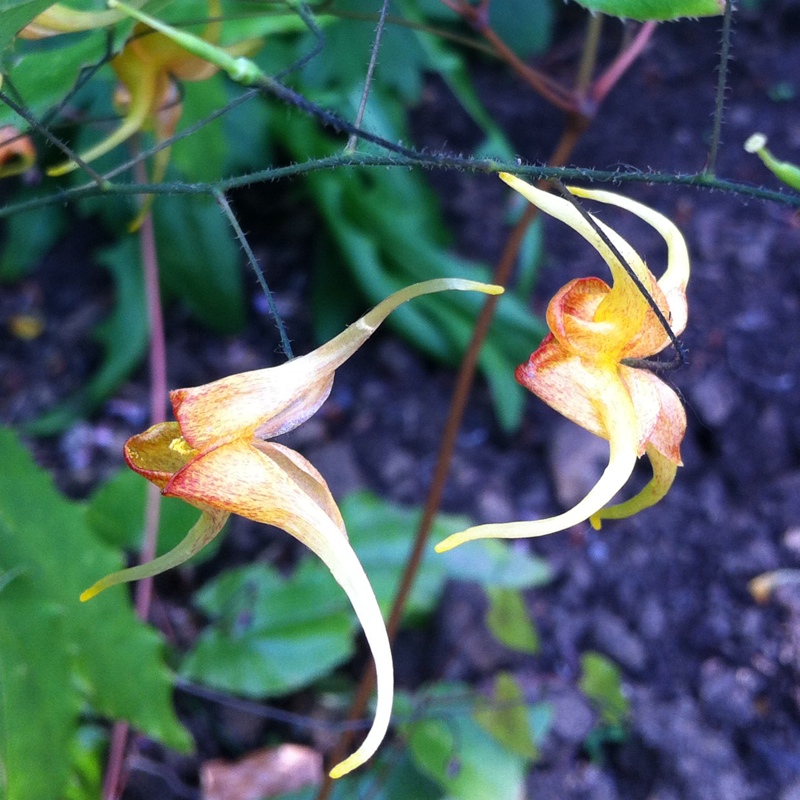
Epimedium x warleyense 'Amber Queen'
Fairy Wand 'Amber Queen'
Epimedium species are deciduous or evergreen hardy perennials growing from an underground rhizome. The majority have four-parted "spider-like" flowers in spring. European species are often some of the most tolerant of dry shade. Japanese species such as grandiflorum are easy to grow but maybe not for the driest spots. Chinese species are ideal for the north side of a wall or a bed that receives some irrigation in eastern UK, and typical shade garden borders in the western parts of the country, where rainfall is generally higher.
Contributed by @joanboston
-
Partial shade to deep shade
-
Very little water
-
Full Frost Hardy: 5F (-15°C)
-
Moist and free draining
Common name
Fairy Wand 'Amber Queen'
Latin name
Epimedium x warleyense 'Amber Queen'
type
Herbaceous Perennials
family
Berberidaceae
ph
5.0 - 7.5 Acid - Neutral
Plant & bloom calendar
-
Best time to plant
full grown dimensions
 0.40 M
0.45 M
0.40 M
0.45 M
Epimedium x warleyense 'Amber Queen'
Epimedium species are deciduous or evergreen hardy perennials growing from an underground rhizome. The majority have four-parted "spider-like" flowers in spring. European species are often some of the most tolerant of dry shade. Japanese species such as grandiflorum are easy to grow but maybe not for the driest spots. Chinese species are ideal for the north side of a wall or a bed that receives some irrigation in eastern UK, and typical shade garden borders in the western parts of the country, where rainfall is generally higher.
Planting young plants
From Early Spring TO Early Spring
Plant epimedium in spring in the dappled shade of deciduous shrubs or on the north side of a building to mimic their home on the forest floor. Japanese or European species are suited to dry spots and Japanese species should be planted in moist but well drained soils. Do check which species you are planting.









